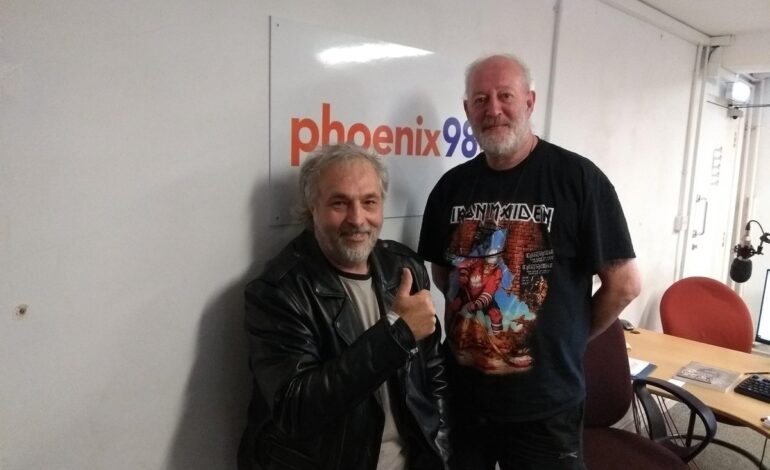Remembering Iron Maiden’s First Singer Paul Mario Day

British rocker Paul Mario Day, Iron Maiden’s original vocalist, died peacefully at his home in Australia on Tuesday at age 69.
Maya Rivers here – a tender lament for a steel-voiced bard who shaped heavy metal’s dawn.
Born in 1954, Day found his calling in raw guitar riffs long before Iron Maiden formed, and at just 19 he answered bassist Steve Harris’s call to front the band’s earliest lineup.
The modest pub gigs of late 1975 offered little fanfare, yet those intimate stages became the crucible for a sound that would redefine rock history.
On that London evening in May 1976, Day lifted the mic for Iron Maiden’s debut performance, a show soaked in sweat and ambition beneath flickering stage lights.
Despite the band’s later triumphs, Day’s tenure ended after ten whirlwind months amid whispers that his presence lacked the flash and fire expected of a headliner.
He looked back in a 2019 interview with Parade and admitted “we were all nobodies all trying to make the best music we could and fighting for an audience,” reminding us that legends begin in anonymity.
In private conversations he quietly claimed authorship of the ethereal track “Strange World” on the group’s 1980 self-titled album, yet his name never appeared in the official credits.
“It still hurts to think the first-ever song I ever composed was on a big-selling album and nobody knows it was me,” Day confessed, his voice edged with regret.
Unbowed, he channeled his drive into More, the band he founded in 1980, unleashing Warhead in 1981 with riffs as sharp as the album’s title suggests.
More quickly earned its place among the New Wave of British Heavy Metal, sharing stages with rising icons and carving out a loyal following on both sides of the Atlantic.
Following his passing, More’s official Facebook page honored him: “We are deeply saddened to learn of the passing of the great More vocalist Paul Mario Day,” underscoring his impact on the genre.
An appearance at the 1981 Monsters of Rock festival in Castle Donington placed Day in the company of AC/DC and Whitesnake, cementing his reputation as a commanding performer.
After More disbanded, Day fronted Wildfire from 1983 to 1984, exploring a heavier edge before stepping into glam rock territory with Sweet in 1985.
Guitarist Andy Scott and drummer Mick Tucker welcomed him into the reformed Sweet lineup, with Scott later posting on Facebook, “We needed a singer and when Paul arrived for the audition we looked no further.”
Day spent his final decades in Australia, his thunderous vocals now punctuating coastal sunsets rather than stadium roars, all while quietly contending with cancer.
No official cause of death has been released, but sources confirm his multi-year struggle with illness, closing a chapter defined by both triumph and private turmoil.
Fans worldwide have already begun sharing live recordings and personal anecdotes online, celebrating his enduring influence on a generation of singers who dared to dream beyond pub stages.
Plans for a tribute concert are already whispered across metal forums, a final salute to the voice that belied its humble start within Iron Maiden’s early lineup.
Though his time in Iron Maiden was fleeting, his fingerprints remain on the band’s origin story and on the tapestry of British rock music.
His journey from pub stages to international festivals reminds us that every legend begins with a single note played in obscurity.
And in the final resonance of his melodic flame, we find the courage to raise our own voices once more.
Sources: Celebrity Storm and New York Post, Parade, MORE Band official Facebook, Andy Scott Facebook
Attribution: Creative Commons Licensed




